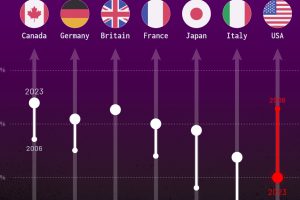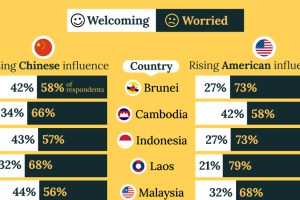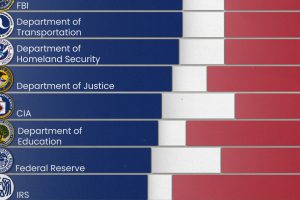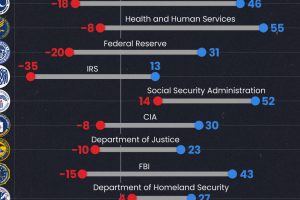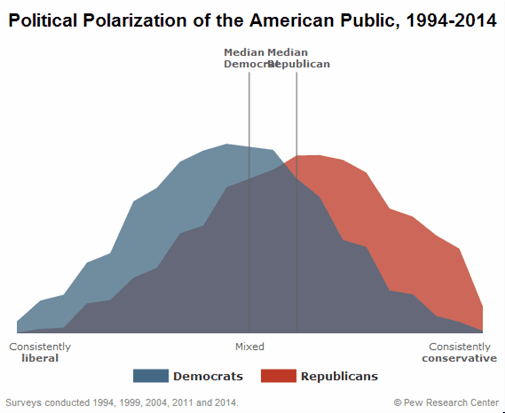
Modern day media has reared its ugly head to make American politics more divisive than ever before. On the one hand, independent media has a more prominent presence which leads to new angles and ideas for those who actively seek them. The flipside is that the internet world is built to be an echo chamber of cognitive bias. Recent studies have shown that our pre-conceptions are not challenged on the web – rather, they get reinforced.
Research from The Pew Research Center confirms that there is growing polarization of politics in the United States, with consensus opinions on both the left and right spreading further apart.
All one has to do to seek proof of this? Take a look at the current outliers in the field of candidates that have announced their US presidential bids: a self-proclaimed democratic socialist, a libertarian-leaning Paul, and a (very) outspoken and often controversial real estate magnate confirm this to be true.
As seen in the above animation, the share of Americans who express a consistently liberal or conservative views have doubled over the past two decades from 10% to 21%. The median positions, which used to overlap relatively closely, have spread much further apart such that the “typical” Republican is more conservative than 94% of Democrats. Two decades ago, this number was only 70%.
Further, there is more hate and blame being passed around these days:

It is now true that 43% of Republicans have “very unfavorable” attitudes about the Democratic Party, and 36% of Republicans even go so far as to say that the blue party is a threat to the nation’s well-being. The feelings are mutual on the other side of the aisle as well, with 38% of Democrats having “very unfavorable” attitudes towards Republicans. This animosity of people surveyed has more than doubled since 1994.
The most ideologically polarized Americans are those that are more engaged in the political process:

Those that were “consistently” or “mostly” liberal or conservative in their views tended to be those that also considered themselves to be politically engaged.
While the polarization of politics in America seems greater than before, the good news is that the addition of people like Donald Trump, Rand Paul, and Bernie Sanders to the conversation may help for an escape from the usual carefully-refined rhetoric. Getting politicians outside of their comfort zones is a small win for everyone, and it will at least provide for new ideas along with some popcorn munching styled entertainment.
Original graphics by: Pew Research


